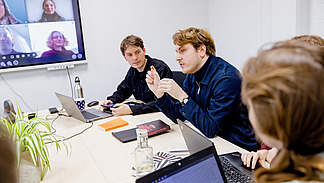Ethics of AI
Welcome to the Research Group Ethics and Critical Theories of AI!
We are working on a contemporary critical philosophy of the digital. This deals with what is at stake socially and politically in the AI-driven transformation of our societies. The approach we have chosen integrates ethics, critique, social philosophy, philosophy of technology and media studies of AI. Our understanding of the term "ethics" is broad and focuses primarily on structures of power and exploitation. In our interdisciplinary approach, ethics expresses itself in the form of social criticism, criticism of digital capitalism or criticism of subjectivity in the digital world.

New DFG Project: Predictive Knowledge is Power
DFG Project “Predictive Knowledge is Power”
Duration: 2026–2029, in cooperation with Prof. Dr. Hannah Ruschemeier.
The project investigates the societal risks of predictive AI applications – methods that generate predictions about people and their behavior from large-scale data. These technologies shape central areas of life such as human resources management, public services, policing, or national security, and thereby shift power relations in our society.
In collaboration between philosophy and law, we develop an ethical and legal analysis of the dangers of predictive knowledge production. The aim is to make collective protection interests visible and to contribute concrete regulatory proposals to ongoing debates on data protection, ethics, and AI governance.
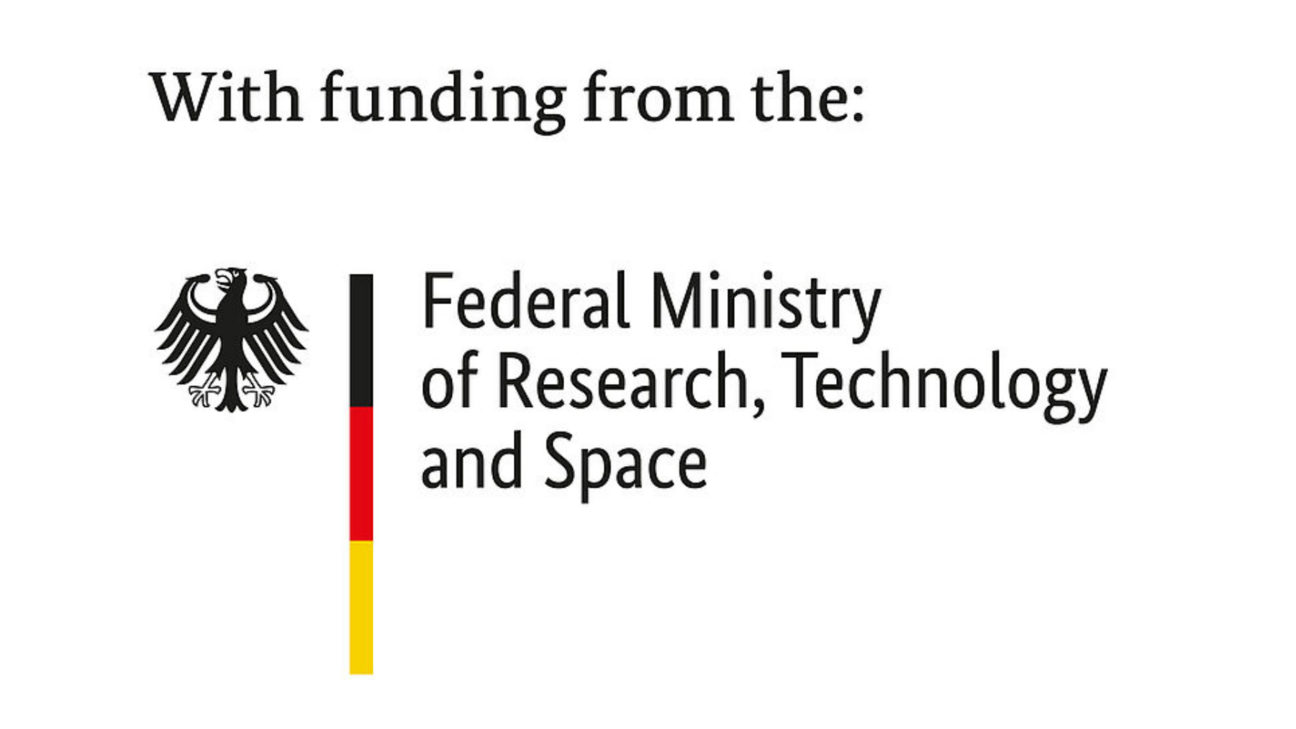
New BMFTR Project: Artificial Intelligence and Democracy
BMFTR Project “AI and Democracy: Rule of Law, Participation, Sustainability”
Duration: January 1 – December 31, 2026.
Artificial intelligence (AI) increasingly shapes the economy, society, and politics. Particularly influential at present are the large, generative, and data-driven AI systems operated by international corporations. Since this technology is primarily controlled by multinational companies, it offers not only tremendous opportunities but also complex risks. It changes power dynamics and raises new questions for democracy and the rule of law. This development requires critical and ethical accompanying research that examines not only the technical but also the societal consequences. The project “AI and Democracy” investigates how democratic values, sustainability, and justice can be preserved and strengthened in a society increasingly shaped by AI technologies.
Who are we?
For our research group, an inclusive working atmosphere, equality and the consideration of young scientists with children are particularly important.
The research group "Ethics and Critical Theories of AI" consists of Prof. Rainer Mühlhoff and his team. Details of Rainer's ongoing work can also be found on Rainer's website.
Current topics in our working group are
- Structural effects of AI
- Geneology and ethics of chatbots
- Privacy and data protection in the context of big data and AI
- Intersectionality and anti-discrimination in the digital society
- AI capitalism and the digital economy
- Poststructuralism and digital subjectivity
- Critical media philosophy of human-machine interaction
Publications
Available now (in German language). Order from the publisher for 8,00 EUR (print) Ebook available on all known plarforms.
“Very impressive […]. Incredibly exciting to read, but also very concerning […].” — Benjamin Knödler ― Deutschlandfunk Kultur
“In his concise, opinionated treatise, Mühlhoff not only dismantles the rhetoric of the AI prophets but also exposes their questionable ideology.” — Matthias Dusini ― Falter
“Rainer Mühlhoff is one of the most interesting thinkers in German philosophy of technology.” — Jana Ballweber ― KNA
Publisher’s announcement: Elon Musk and Donald Trump are firing masses of public sector employees in order to build an AI state. Tech CEOs sell artificial intelligence as a savior for humanity’s biggest problems, even though the industry behind it is based on exploitation and contempt for human dignity. Why is the public distracted by speculation about salvation or annihilation through AI, instead of paying attention to the real and significant harms AI is causing in the present? How can we identify the increasingly fascist tendencies emerging from the alliance between the tech industry and the new right? Rainer Mühlhoff develops answers and discusses possible solutions.
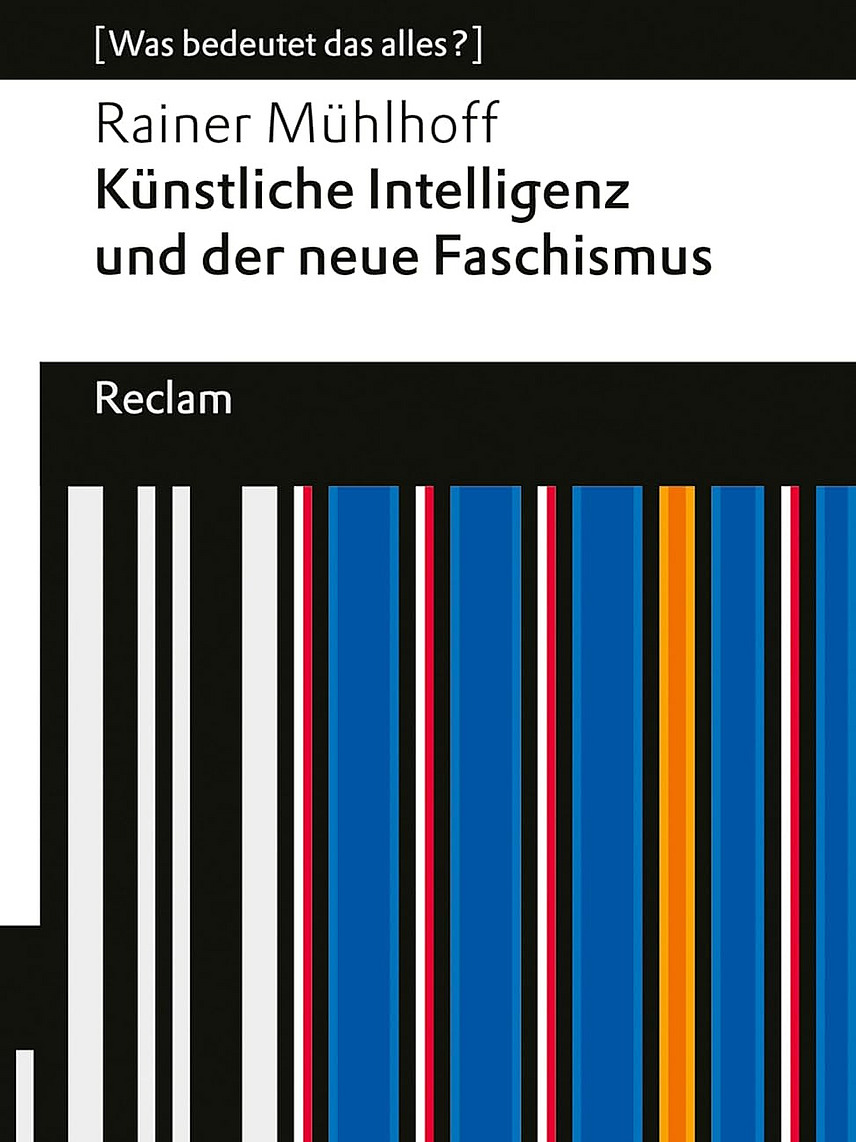
There’s no AI ethics without addressing power.
In this book, Rainer Mühlhoff lay the foundation for a Power-Aware Ethics of AI – bridging critical philosophy, Science and Technology Studies, and media theory to rethink ethics in the age of networked media and data-driven AI.
- he introduces the concept of Human-Aided AI
- Explores how power, UX design, and subjectification intertwine
- Revisits the history of AI and cybernetics
- Critiques the idea that all biases can be “fixed” by technical means
- Makes the case for collective ethics and responsibility
- Calls for stronger regulation of AI
- And concludes with a “Manifesto for a Power-Aware Ethics of AI”
Open Access, published by Bristol University Press. PDF full text available as well.
This project grew out of his lecture series at the University of Osnabrück – heartfelt thanks to all the students for their invaluable engagement and enthusiastic feedback.
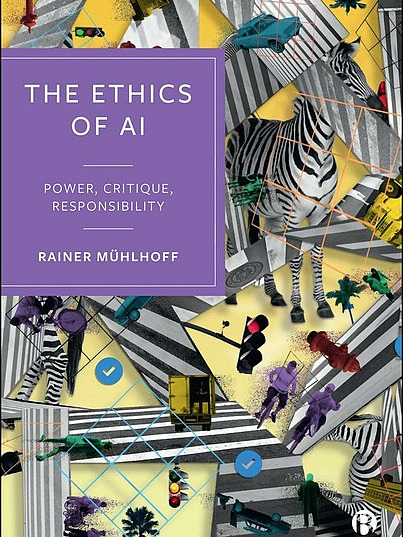
Rainer Mühlhoff and Hannah Ruschemeier, International Journal of Law and Information Technology
In recent years, big tech and AI companies have put much effort into promoting their vision of rapid AI advancement as the only path forward. But is this truly the only option? What interests lie behind these grand narratives, and which alternative futures are being sidelined?
This new article investigates how the AI industry shapes collective visions of the future to bolster its economic power, drawing parallels to the tactics used by fossil fuel companies in the 20th century. The AI-driven futures they promote often lead to exclusionary and unsustainable "elitist futures", characterized by power consolidation and persistent inequalities. Furthermore, these visions echo a colonial legacy of extractive expansion, portraying the future as a frontier to be conquered.
It is urgent and necessary to demystify how the AI industry constructs these collective future visions for its own benefit. This allows to better inform transformative actions and strive for truly sustainable and inclusive futures.
Witschas, Annemarie. Prefabricated futures: AI imaginaries between elitist visions and social justice claims. Nomos Verlagsgesellschaft mbH & KG, 2025.
Read the Nomos article
Rainer Mühlhoff, Verfassungsblog
On the Internet, we generate data every day that we often think is harmless – our likes, our location or our browser history. But companies that own this data can use AI algorithms to derive intimate information from it. Do we suffer from mental illness? Do we abuse substances? Are we rich or poor? Such algorithms are used to treat people differently in an automated way – when it comes to the price of insurance, the selection of applicants in hiring processes, decisions about credit or immigration. The combination of Big Data and AI is currently producing a new technology of population management. This development leads to a new form of power in our societies, to which we all contribute through our data and which we therefore need to discuss critically and ethically.
Events 2025
Constanze Kurz, spokesperson for the Chaos Computer Club, and I will discuss my new book “AI and the New Fascism” together at Urania Berlin — on the very day of the book launch (in German language)!
Admission: €8, reduced: €5, members: €3
Event info + tickets - pre-order (print) from the publisher - publisher's pdf preview
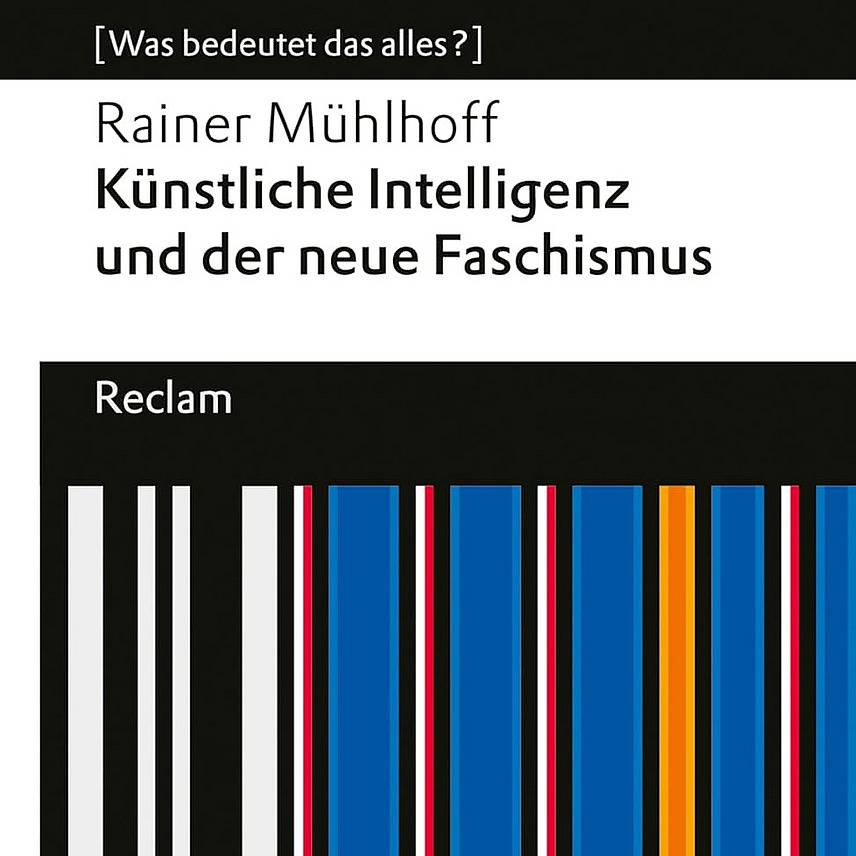
What happens when artificial intelligence is used to control government processes - and increasingly undermines democratic principles?
In the USA, we are already seeing the radical restructuring of the rule of law: tens of thousands of state employees have been laid off, while unelected tech billionaires like Elon Musk are taking control of political and administrative processes.
The working group "Ethics and Critical Theories of Artificial Intelligence" at Osnabrück University invites you to discuss the protection of our democracy in times of techno-authoritarian politics. Contributions from science and art shed light on the connection between AI and ultra-right-wing movements.
Discussion in German · Theater am Domhof, 7-9 p.m.
Free admission, free tickets required via the theater box office at karten@theater-osnabrueck.de. Further information at https://outreachlab.org/KI-und-Zukunft-der-Demokratie and https://rainermuehlhoff.de/en/KI-Zukunft-Demokratie-Event/

-
Invited presentation “Denke ich noch selbst? KI, ChatGPT & Co.” — phil.cologne 2025, session for students grade 9 and up. Wednesday, 25 June 2025, 10:00, COMEDIA Theater, Roter Saal, Vondelstraße 4–8, Cologne-Südstadt.
-
Invited panelist, podium discussion “Künstliche Intelligenz als Lehrkraft? Feedback und Bewertung durch die Maschine” — Europa-Universität Flensburg, 19 June 2025.
-
Invited talk “Updating Purpose Limitation for AI – a normative approach to AI regulation” (with Hannah Ruschemeier) at the Oxford Internet Institute, University of Oxford. Monday, 16 June 2025, 12:00–13:00 UK / 13:00–14:00 CET.
-
Invited keynote “Vom Mythos zur Machtfrage: Die gesellschaftliche Bedeutung von KI” — HSBI KI-Kongress 2025 “Chancen und Herausforderungen durch KI”, Hochschule Bielefeld, 3 June 2025.
-
Invited talk “The AI State: Why We Need To Save The Rule Of Law From ‘Effectiveness’” (with Hannah Ruschemeier) — IViR Lecture Series, University of Amsterdam, 16 May 2025.
-
Invited presentation “Hausaufgaben mit KI korrigieren!?” (with Marte Henningsen) — University Future Festival 2025, 14 May 2025.
-
re:publica 25, Berlin — Talk “Digitaler Faschismus: Wie KI-Ideologie die Demokratie untergräbt und wie wir sie verteidigen können” (with Aline Blankertz), 28 May 2025, 17:30–18:00, Stage 5.
-
Invited keynote “Die Macht der künstlichen Intelligenz” — Humboldt-Lecture 2025, Humboldt-Gymnasium, Berlin, 24 March 2025.
-
Invited panelist, Session 3.3 “Chancen und Risiken von Künstlicher Intelligenz – Sichere Nutzung intelligenter Technologien” — Nationale Konferenz IT-Sicherheitsforschung 2025, BMBF (Bundesministerium für Bildung und Forschung), 19 March 2025, 10:45–12:15.
-
Conference presentation “Prediction Power and Cybernetic AI” (with Hannah Ruschemeier) — STS-Hub 25, Berlin, 11 March 2025.
-
Invited talk “Reading as Assessing. Automated Homework Grading With LLMs” — Workshop “New Reading Scenes: On Machine Reading and Reading Machine Learning Research”, Institute for Advanced Study in the Humanities (KWI) Essen, in cooperation with SFB Virtuelle Lebenswelten, Ruhr-Universität Bochum, organized by Katia Schwerzmann. Bochum, 28 February 2025.



